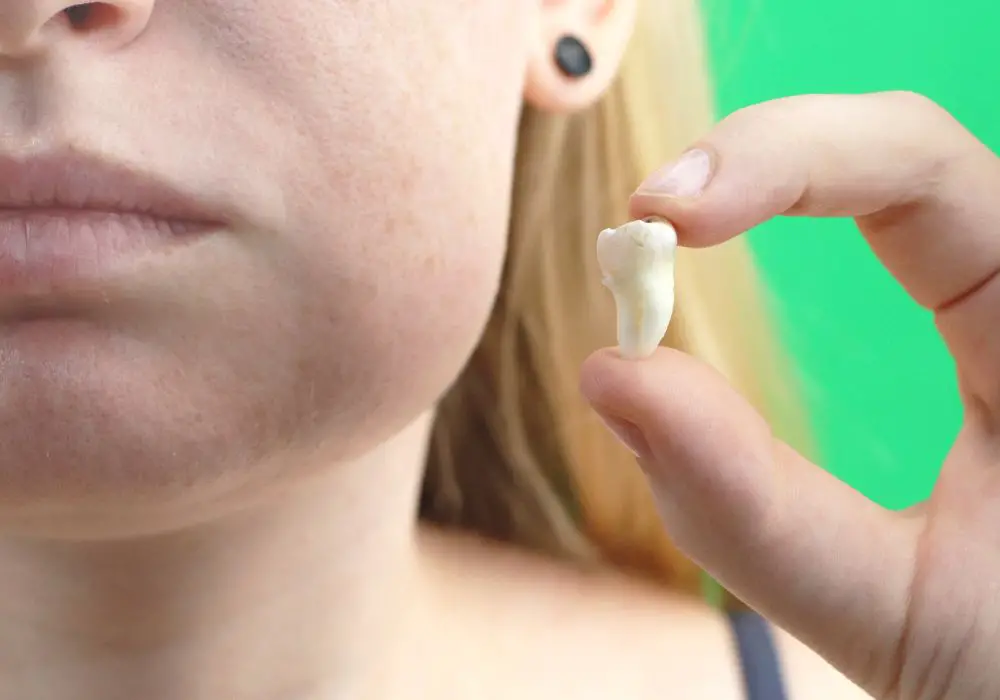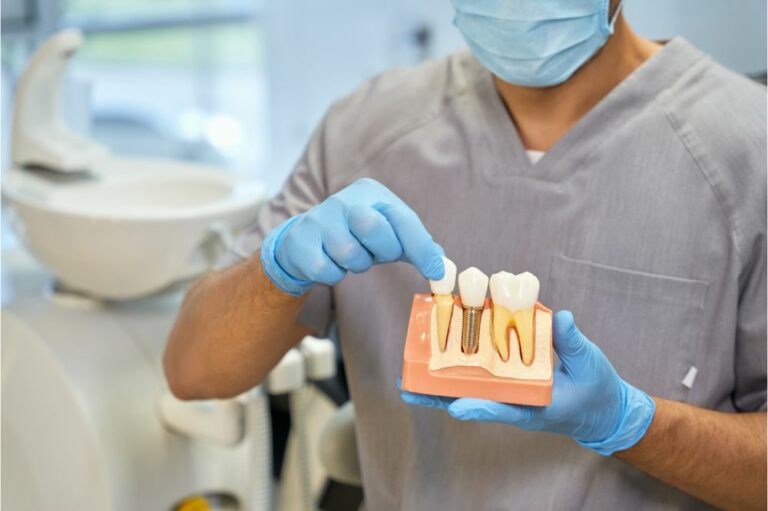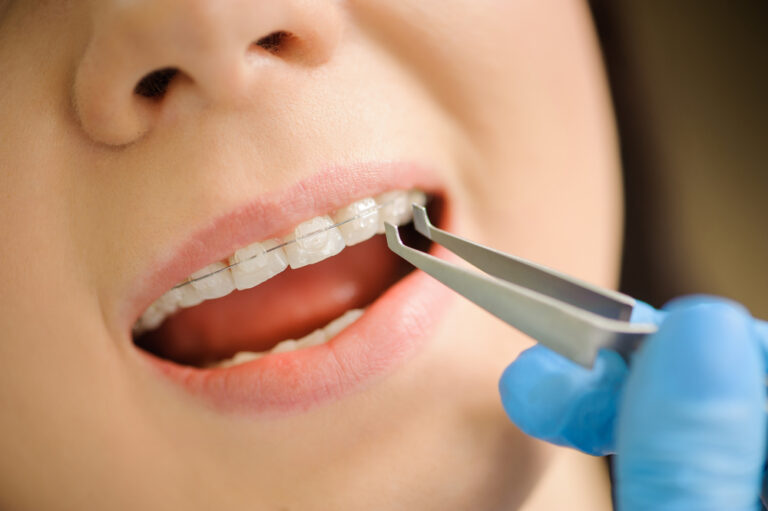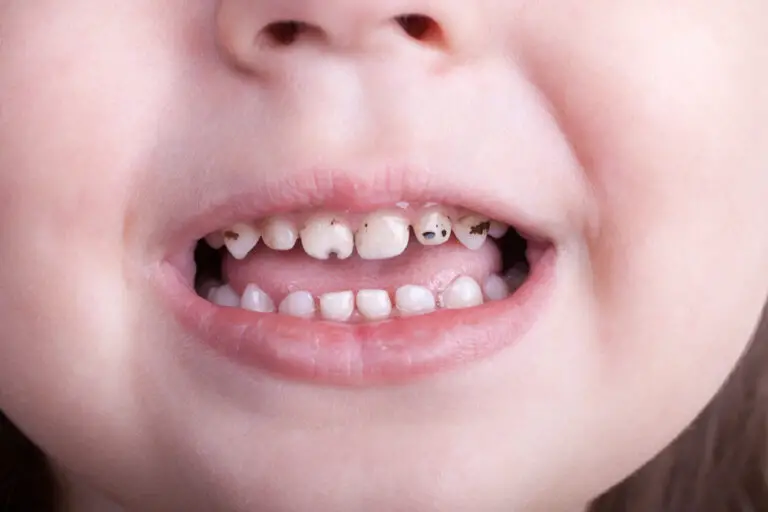It’s normal for your face to be swollen for a few days after wisdom teeth removal surgery. The swelling is part of your body’s natural healing process as the surgical site recovers. However, swelling lasting more than 3-4 days can cause concern. This article will take an in-depth look at why your face may still be swollen nearly a week after wisdom tooth extraction.
What causes prolonged swelling after wisdom tooth removal?
Swelling after surgery occurs due to inflammation and trauma to the tissue in the surgical area. Extracting wisdom teeth involves removing bone tissue and manipulating soft tissues to access the tooth, which leads to inflammation and fluid buildup. Here are some specific causes of ongoing swelling after wisdom teeth removal:
Inflammation
Inflammation is your body’s response to injury. When wisdom teeth are extracted, nearby soft tissue and bone are unavoidably damaged, triggering an inflammatory reaction. Specialized inflammatory chemicals are released, including:
- Histamine – Increases blood vessel permeability and allows fluid, antibodies, and white blood cells into the area to start the healing process. This causes swelling.
- Bradykinin – Also dilates blood vessels and enhances vascular permeability resulting in edema.
- Prostaglandins – Amplify pain signals and contribute to the inflammatory response. Non-steroidal anti-inflammatory drugs (NSAIDs) like ibuprofen help reduce prostaglandins.
This inflammatory process causes significant swelling that peaks at 24-48 hours after surgery. It normally gradually subsides over the next 5-7 days. Difficult extractions provoke more inflammation and can prolong swelling for up to 2 weeks.
Infection
The extraction leaves an open wound in the gum tissue that allows bacteria to enter and colonize the area. Certain bacteria like streptococci and anaerobes tend to infect extraction sites. Your dentist will prescribe antibiotics to help prevent infection.
However, if bacteria multiply significantly, an infection develops leading to:
- Pus discharge
- Fever
- Severe throbbing pain unresponsive to medication
- Foul odor from the site
- Large tender lymph nodes under the jaw
This exacerbates inflammation and swelling. See your dentist promptly if you have these symptoms, as you may need surgical drainage or more aggressive antibiotic therapy to clear the infection.
Hematoma
A hematoma refers to a localized collection of clotted blood that leaks into surrounding tissues after surgery. This occurs when blood vessels torn during extraction ooze blood that clots under the gums. The clot displaces tissue and causes pronounced swelling.
Small hematomas get reabsorbed as healing occurs. Large ones require needle aspiration or small incision drainage by a dentist to remove the blood and reduce swelling quickly.
Bone fragments
Sometimes wisdom tooth removal leaves tiny fractured bone chips in the extraction socket. Your body detects these as foreign bodies and initiates an inflammatory reaction to expel them. Lingering bone fragments provoke delayed swelling and discomfort a week after surgery.
The surgeon may need to irrigate the sockets to flush out the particles and resolve the swelling. This is called an alveolar bone debridement.
Blood clot dislodgement
The initial blood clot that forms in the extraction socket helps begin the healing process. Premature loss of this clot due to vigorous rinsing, smoking, drinking with a straw, or other activities causes a dry socket. This exposes underlying nerves and bone, causing severe pain and delayed swelling while a new clot slowly reforms.
Food entrapment
It’s important to follow a soft food diet after surgery. Hard, crunchy foods like chips or nuts can become trapped in the extraction sites and spur inflammation. Meticulous oral hygiene is vital to keep food debris from prolonging swelling.
Factors that influence swelling duration

Certain factors can predispose you to more pronounced and persistent wisdom tooth extraction swelling including:
- Age – Young people 17-25 years old tend to swell more because they have dense bone and an exuberant inflammatory response.
- Gender – Estrogen fluctuations in females may prolong post-operative swelling. Oral contraceptives also increase risk.
- Difficulty of surgery – Swelling lasts longer when wisdom teeth are impacted, hooked, or require sectioning for removal. Having all four wisdom teeth extracted together also compounds swelling.
- Medications – Drugs that thin the blood like aspirin, NSAIDs, steroids, or anticoagulants lead to more bleeding and swelling.
- Medical history – Conditions like diabetes, hypertension, autoimmune disorders, allergies, or thyroid disorders can impair healing and prolong swelling.
- Genetics – Some people are genetically prone to increased inflammation and swelling after surgery. Discuss with your dentist.
- Oral hygiene – Pre-existing gum disease or infection around wisdom teeth increases swelling risk.
- Smoking – Tobacco suppresses immune function, constricts blood vessels, and impedes healing. This worsens swelling.
- Alcohol – Alcohol expands blood vessels which can increase post-surgical bleeding and edema. Avoid alcohol for 48 hours after surgery.
- Level of activity – Over-exertion and vigorous exercise too soon after surgery enhances swelling. Rest is advised.
Signs of complication requiring prompt dental attention
You should visit your dentist promptly if you have:
- Temperature over 100°F
- Pus discharge from the extraction site
- Severe throbbing pain unrelieved by medication
- Difficulty breathing or swallowing
- Excessive bleeding
- Rash or hives suggesting allergic reaction
- Swelling that worsens after day 4 instead of improving
These urgent symptoms likely indicate a complication like infection or dry socket requiring immediate treatment. The dentist will examine your mouth and may order dental X-rays or blood tests to guide therapy.
Self-care tips to minimize normal wisdom tooth swelling
You can optimize your recovery and reduce wisdom tooth extraction swelling at home with these measures:
- Cold compresses – Apply an ice pack wrapped in a towel to the cheek near the extraction site for 15-20 minutes at a time during the first 48 hours. Never place ice directly on bare skin.
- Head elevation – Sleep propped up with your head at least 2 pillows high to decrease fluid accumulation in the lower face. Keep your head elevated as much as possible.
- Warm saltwater rinses – Gently rinse your mouth with warm saltwater 3-4 times a day starting 24 hours after surgery to flush away debris and bacteria. Make sure the water is not too hot to avoid pain.
- Medications – Take ibuprofen, naproxen, or other over-the-counter anti-inflammatory medications as directed to reduce swelling and discomfort. Acetaminophen can help with pain as well. Some dentists may prescribe stronger steroids like dexamethasone to minimize swelling.
- Bite on gauze – Gently biting on clean, moist gauze pads can apply pressure to reduce edema. Change gauze pads frequently.
- Healthy soft foods – Stick to a soft, cool diet including foods like yogurt, milkshakes, apple sauce, eggs, broths, mashed potatoes, etc. after surgery. Avoid spicy, salty, acidic, or crunchy items. Drink plenty of water.
- Quit smoking – Smoking inhibits healing after surgery. Avoid it for 7-10 days during recovery. The sucking action when inhaling can dislodge blood clots from sockets.
- Rest – Limit physical activity and avoid strenuous exercise for the first 24-48 hours. Restrict talking, gum chewing, brushing near surgical sites, etc. to avoid disrupting the blood clot during initial healing.
- Monitor swelling – Watch for spreading redness, worsening pain, pus, or hard large lumps suggesting infection. Contact your dentist promptly about concerning changes.
- Follow up appointment – See your dentist for follow up 3-4 days after surgery to ensure you are healing well. They can address any lingering swelling issues.
How long until wisdom tooth extraction swelling resolves?

The face typically becomes noticeably swollen on the second day after wisdom tooth removal, peaks around days 3-4, then gradually subsides. Here is the expected timeline for swelling duration:
- Days 1-2 – Mild to moderate swelling develops
- Days 3-5 – Significant swelling but should start improving after peaking at day 4
- Day 5 – Residual swelling around jaw, likely manageable
- Day 7 – Swelling localized to extraction sites only, may still be visible
- Day 10 – Only subtle puffiness remains, swelling mostly resolved
- Day 14 – Swelling completely resolves
However, swelling duration depends on individual factors like age, surgery complexity, medications, and genetics. Contact your oral surgeon if you still have significant visible swelling and puffiness a week after wisdom tooth removal for evaluation. You may need medication or other measures to reduce persistent swelling.
Treatments for swelling lasting longer than 5 days
If swelling persists beyond 5 days, your dentist has several options to help resolve it:
- Steroid injection – A corticosteroid like dexamethasone injected directly into the swollen tissue delivers strong anti-inflammatory effects.
- Needle aspiration – Inserting a large bore needle and syringe into the area to drain excess fluid applies pressure and shrinks the tissues.
- Hyperbaric oxygen therapy – Exposure to pure oxygen in a pressurized chamber promotes wound healing by increasing blood supply and fighting bacteria.
- Additional drugs – Prescription oral steroids or antibiotics may be prescribed if infection is suspected.
- Surgical debridement – Rarely, trimming infected tissue or washing out debris surgically becomes necessary if swelling is very severe.
Your dentist will select the most appropriate treatment options based on your symptoms and clinical examination. Most residual swelling resolves with self-care, but call your dentist if you have any concerns.
Frequently asked questions
How long does wisdom teeth swelling typically last?
The average duration of wisdom tooth extraction swelling is 3 to 7 days. It progressively improves after peaking on days 2-4. Swelling lasting over 7 days is unusual unless there is an infection or another problem.
Is swelling 5 days after wisdom tooth normal?
It is common to still have mild jaw swelling 5 days after surgery, but it should not be severe. Some postoperative swelling can persist up to 2 weeks. Notify your dentist if swelling seems excessive or gets worse instead of better.
Should I worry about uneven swelling on one side?
Asymmetrical swelling is very common after wisdom teeth removal because each side heals independently. However, sudden onset of severe unilateral swelling later in recovery could indicate infection, so contact your dentist.
What home remedies help wisdom tooth swelling?
Cold compresses, head elevation, soft foods, saltwater rinses, chewing gum after several days, anti-inflammatory medications, rest, and avoiding smoking or drinking with a straw can minimize wisdom tooth removal swelling at home.
When should I call my dentist about wisdom tooth swelling?
Contact your dentist urgently for symptoms like pus discharge, fever, severe unrelenting pain, difficulty swallowing, worsening swelling after day 5, rash, or excessive bleeding. These may indicate complications needing treatment. Otherwise, residual swelling often just needs more time to resolve.
Conclusion
It is not unusual to still have some facial puffiness 5 days after wisdom tooth extraction, but severe swelling is a concern. Most swelling peaks around days 2-4 then gradually subsides within 7-14 days. Difficult extractions, medical issues, smoking, and medications can prolong swelling. Try cold compresses, head elevation, soft foods, anti-inflammatories, and saltwater rinses to help manage it at home. Call your dentist if swelling worsens or interferes with eating to address any complications promptly. Closely following post-surgical instructions helps minimize typical wisdom tooth swelling duration.






